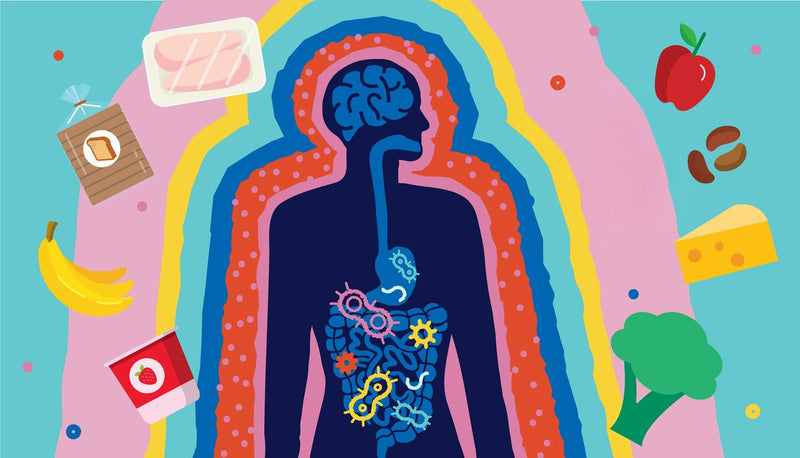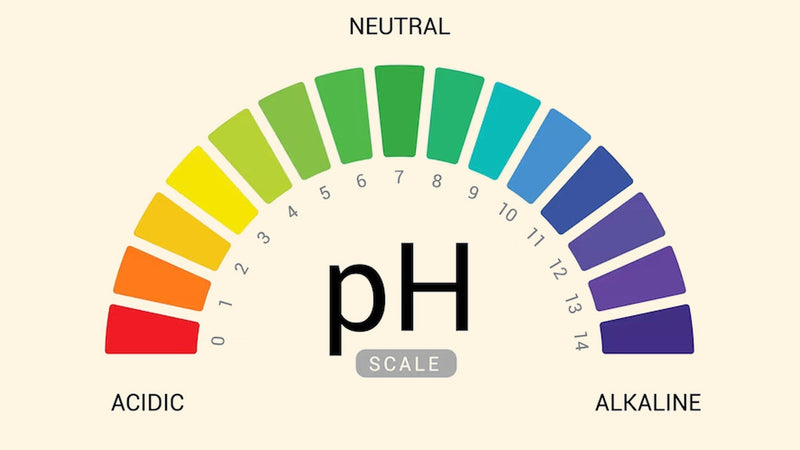

The Truth About Collagen Myths: What Actually Works, Backed by Science
Collagen has become the darling of the beauty and wellness industry, with products promising everything from wrinkle reduction to joint health flooding the market. From powders and pills to creams and coffees, collagen is everywhere. But amid the marketing hype and celebrity endorsements, a cloud of confusion has formed around what collagen actually is, how it works, and whether these products deliver on their promises.
The truth is that collagen science is far more nuanced than most marketing campaigns suggest. While collagen is undeniably crucial for skin health, aging gracefully, and overall vitality, not all collagen products are created equal, and many popular claims simply don't hold up to scientific scrutiny. Understanding the difference between evidence-based collagen support and marketing mythology is essential for making informed decisions about your health and beauty routine.
What Is Collagen, Really?
Collagen is the most abundant protein in the human body, making up about 30% of total protein content. It's the primary structural protein that provides strength and elasticity to skin, bones, tendons, ligaments, and other connective tissues. There are at least 28 different types of collagen, but types I, II, and III account for 80-90% of the collagen in your body.
Type I collagen is the most prevalent in skin, providing tensile strength and structure. As we age, our natural collagen production declines by about 1% per year after age 20, accelerating significantly during menopause when women can lose up to 30% of their skin collagen in the first five years. This natural decline is responsible for many visible signs of aging, including wrinkles, sagging skin, and reduced elasticity.
However, collagen isn't something you can simply "replace" by applying it topically or consuming it directly. The reality of how collagen works in the body is far more complex—and understanding this complexity is key to separating fact from fiction.
Your body doesn't absorb collagen as collagen—it breaks it down into amino acids and peptides, which are then used as building blocks to create new proteins, including collagen, based on your body's current needs.
Debunking Common Collagen Myths
Myth 1: Topical Collagen Creams Replenish Skin Collagen
This is perhaps the most pervasive collagen myth. Collagen molecules are far too large to penetrate the skin's barrier when applied topically. Even hydrolyzed (broken-down) collagen peptides in creams cannot be absorbed intact into the deeper layers of skin where collagen production occurs.
While collagen creams may provide temporary hydration and create a smoothing effect on the skin's surface, they cannot stimulate collagen production or replace lost collagen. Any anti-aging benefits from these products come from other ingredients like retinoids, peptides, or antioxidants—not the collagen itself.
Myth 2: All Collagen Supplements Are Equally Effective
Not all collagen supplements are created equal. The effectiveness depends heavily on the type of collagen, molecular weight, source, and formulation. Hydrolyzed collagen peptides (collagen that has been broken down into smaller, more absorbable pieces) are significantly more bioavailable than undenatured collagen.
Additionally, different collagen types serve different purposes: Type I and III are best for skin, hair, and nails, while Type II is primarily for joint health. Marine collagen (from fish) has smaller peptides that may be more easily absorbed than bovine (beef) collagen, though both can be effective when properly hydrolyzed.
Myth 3: More Collagen Equals Better Results
Taking excessive amounts of collagen won't necessarily lead to better results. Your body can only utilize a certain amount of amino acids for protein synthesis at any given time. Most clinical studies showing benefits use doses between 2.5-15 grams per day, with 10 grams being the most commonly effective dose for skin benefits.
Excess collagen is either excreted or converted to energy, making mega-dosing both unnecessary and potentially wasteful. Consistency and quality matter far more than quantity.
Myth 4: Collagen Works Instantly
Collagen supplementation requires patience. Since collagen turnover in the skin takes approximately 4-6 weeks, most studies show measurable results appearing after 8-12 weeks of consistent use. Claims of overnight results or dramatic changes within days are not supported by scientific evidence.
What Science Actually Says About Collagen
Despite the myths, there is substantial scientific evidence supporting the effectiveness of certain collagen approaches:
- Oral Hydrolyzed Collagen Peptides: Multiple double-blind, placebo-controlled studies have demonstrated that oral supplementation with hydrolyzed collagen peptides significantly improves skin hydration, elasticity, and reduces wrinkle depth
- Dose-Dependent Effects: Research shows that 2.5-10 grams daily for 8-12 weeks produces measurable improvements in skin parameters
- Joint Health Benefits: Clinical trials have confirmed that collagen supplementation can reduce joint pain and improve mobility in individuals with osteoarthritis
- Hair and Nail Strength: Studies show improved nail growth rate and reduced breakage, along with potential benefits for hair thickness
- Wound Healing Support: Collagen peptides may accelerate wound healing and tissue repair processes
A 2023 meta-analysis published in the Journal of Drugs in Dermatology reviewed 19 clinical trials involving over 1,100 participants and concluded that oral collagen supplementation consistently improved skin elasticity, hydration, and dermal collagen density compared to placebo groups.
How Collagen Supplements Actually Work
When you consume hydrolyzed collagen peptides, they are absorbed into your bloodstream as small peptides and free amino acids. These building blocks then signal your body's fibroblasts (collagen-producing cells) to increase collagen synthesis through a process called "matrikine signaling."
Essentially, the presence of these specific collagen peptides acts as a signal to your body that more collagen is needed, triggering a cascade of cellular responses that lead to increased production of new collagen, elastin, and hyaluronic acid. This is why hydrolyzed collagen is effective—it's not about directly replacing lost collagen, but about stimulating your body's natural production mechanisms.
The key amino acids in collagen—glycine, proline, and hydroxyproline—are particularly important for this signaling process. When these are delivered in the right ratios and molecular forms, they effectively communicate with your cells to boost collagen production.
Supporting Nutrients: Collagen Doesn't Work Alone
Collagen production requires several co-factors to be effective. Taking collagen in isolation may provide some benefits, but combining it with supporting nutrients significantly enhances results:
- Vitamin C: Essential for collagen synthesis; without adequate vitamin C, your body cannot properly form collagen molecules
- Zinc: Supports collagen formation and wound healing processes
- Copper: Necessary for the cross-linking of collagen fibers that provides structural strength
- Silica: Supports connective tissue health and collagen formation
- Amino Acids: Additional glycine, proline, and lysine can support collagen production
This is why the most effective collagen supplements often include vitamin C and other supporting nutrients in their formulations. It's also why a nutrient-rich diet is crucial for maximizing the benefits of collagen supplementation.
Studies show that collagen supplements containing vitamin C produce 30-40% better results than collagen alone, highlighting the importance of proper nutrient synergy.
Lifestyle Factors That Support Natural Collagen Production
While supplementation can be beneficial, supporting your body's natural collagen production through lifestyle choices is equally important:
- Sun Protection: UV radiation is the #1 cause of collagen breakdown; daily sunscreen use is non-negotiable
- Smoking Cessation: Smoking dramatically accelerates collagen degradation and impairs production
- Sugar Reduction: High sugar intake leads to glycation, which damages collagen and elastin fibers
- Adequate Sleep: Collagen production peaks during deep sleep; poor sleep quality impairs this process
- Stress Management: Chronic stress elevates cortisol, which breaks down collagen
- Protein-Rich Diet: Ensure adequate intake of high-quality protein to provide amino acid building blocks
Topical Alternatives That Actually Stimulate Collagen
While topical collagen doesn't work, several other topical ingredients have been scientifically proven to stimulate collagen production:
- Retinoids: Gold standard for collagen stimulation; increase collagen production by up to 80% with consistent use
- Peptides: Signal peptides like palmitoyl pentapeptide-4 can stimulate collagen synthesis
- Vitamin C: Topical L-ascorbic acid boosts collagen production and provides antioxidant protection
- Alpha Hydroxy Acids: Glycolic and lactic acids can stimulate collagen through controlled exfoliation
- Niacinamide: Supports collagen production and protects existing collagen from degradation
These ingredients work by either directly stimulating fibroblasts, providing essential co-factors, or creating micro-injuries that trigger the body's natural healing and collagen production response.
Choosing Quality Collagen Supplements
When selecting a collagen supplement, look for these quality indicators:
- Hydrolyzed Collagen Peptides: Must be hydrolyzed for proper absorption
- Third-Party Testing: Look for certifications from NSF, USP, or Informed-Choice
- Transparent Sourcing: Know the source (marine, bovine, chicken) and ensure sustainable, ethical practices
- Clinical Dosing: Should provide 2.5-10 grams of collagen peptides per serving
- Vitamin C Inclusion: Ideally includes vitamin C or instructions to take with vitamin C-rich foods
- Minimal Additives: Avoid unnecessary fillers, artificial flavors, or sweeteners
The Future of Collagen Science
Ongoing research continues to refine our understanding of collagen and develop more effective delivery methods:
- Bioactive Peptides: Identifying specific collagen peptide sequences that target particular benefits
- Enhanced Bioavailability: New processing methods to improve absorption and utilization
- Personalized Collagen: Genetic testing to determine individual collagen needs and optimal types
- Sustainable Sources: Plant-based collagen alternatives and upcycled marine sources
- Combination Therapies: Integrating collagen with other proven anti-aging approaches for synergistic effects
Embracing Evidence-Based Collagen Support
The truth about collagen is both more complex and more promising than the marketing myths suggest. While you can't simply "replace" lost collagen through topical application or expect overnight miracles from supplements, there are scientifically validated approaches that can significantly support your body's natural collagen production and maintenance.
The key is understanding that collagen support is a holistic endeavor that combines targeted supplementation with proper nutrition, lifestyle choices, and complementary topical treatments. It's not about finding a single magic bullet, but about creating the optimal internal and external environment for your body to produce and maintain healthy collagen levels.
By separating evidence-based strategies from marketing hype, you can make informed decisions that truly support your skin health, joint function, and overall vitality. Collagen isn't a miracle cure, but it is a powerful tool when used correctly as part of a comprehensive approach to health and aging.
In the end, the most effective collagen strategy isn't about consuming the most expensive powder or applying the fanciest cream—it's about understanding the science, supporting your body's natural processes, and maintaining realistic expectations about what's possible through evidence-based approaches.


















